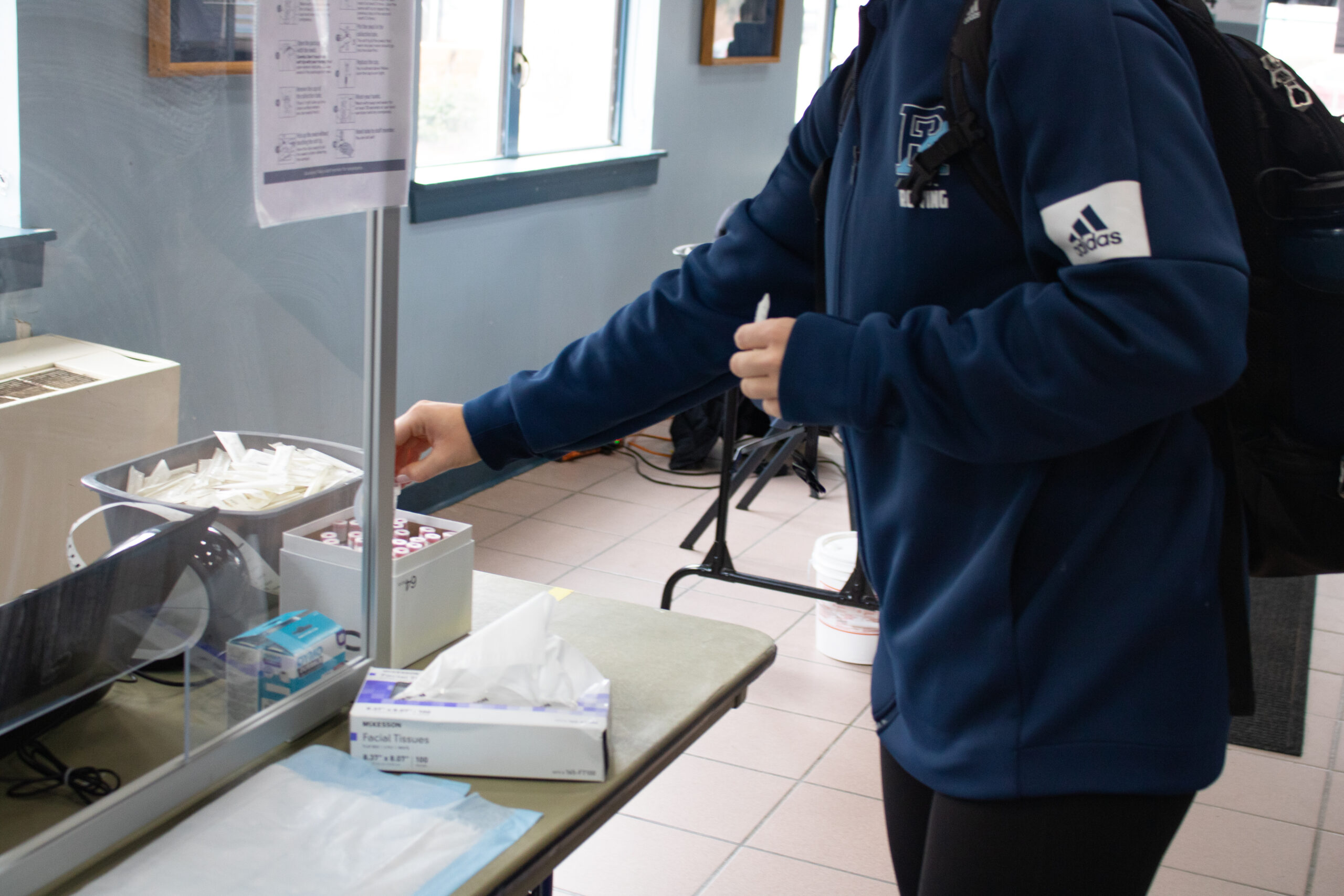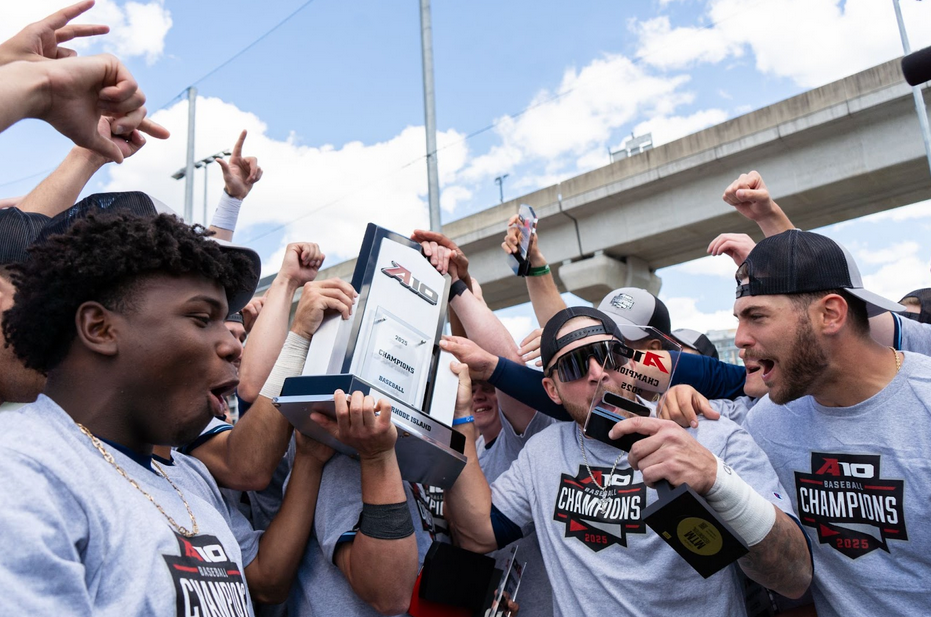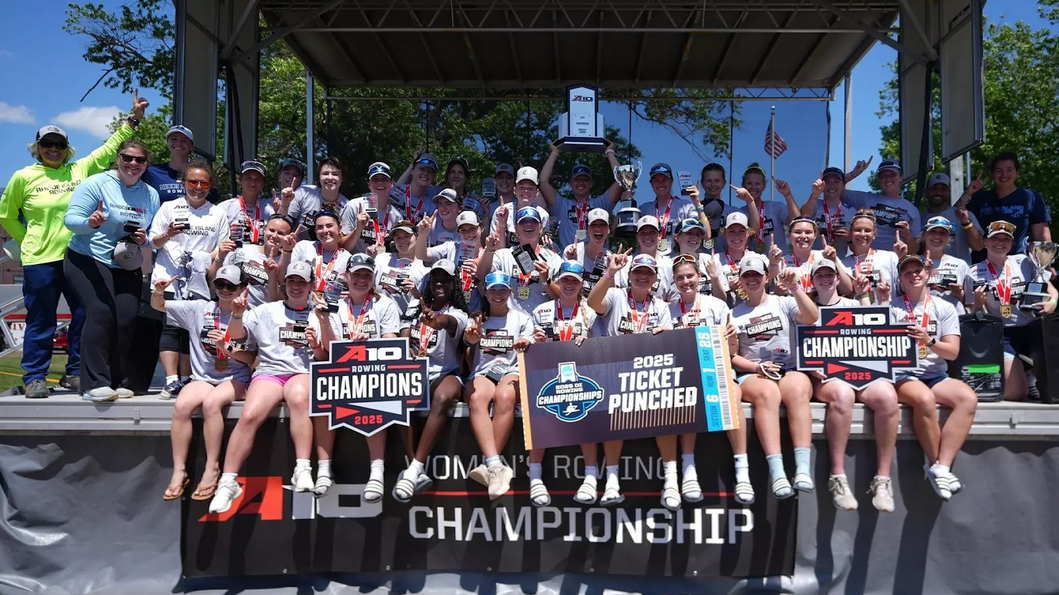Sophomore rower Nicole Jones performs a COVID-19 test inside the Memorial Union. PHOTO CREDIT: Erin Brown
For the first four months of the academic year, it looked like student-athletes would once again have a somewhat normal athletic season, but as the winter months arrived, that quickly changed with the rise of the more contagious Omicron variant of COVID-19.
Around the country, including here in Kingston, hundreds of athletic events were cancelled and postponed as teams faced the challenges of the new variant. Most notably, numerous positive tests among players and staff left both the men’s and women’s basketball teams on the sidelines for a three-week period between late December and early January.
The cancellation of these games took a toll on not only the players and staff of these teams, but also those who closely work with them. Since the beginning of the pandemic, Associate Athletic Director of Health and Performance Andy Llaguno has been on the forefront of the athletic department’s efforts to ensure that student-athletes can safely compete, serving on the University’s COVID-19 Task Force. Llaguno said that the sudden rise of the Omicron variant has taken a toll on the department as a whole.
“It’s a stressful time for everybody, but for our athletic trainers and physicians, it is a lot of extra work just to make sure that we’re doing the right things to keep our athletes going,” Llaguno said. “So following all the guidelines and making sure they’re wearing the masks and doing the right things, sometimes is a lot, a lot of extra work.”
In order to combat any potential outbreaks on campus, the University updated its COVID-19 guidance prior to the start of the spring semester. Before returning to campus for the start of the spring semester, all students and staff members were required to show proof of a negative test 72 hours before arriving to campus, as well as proof that they have received their COVID-19 booster shots.
For all student-athletes returning to campus for workouts, all athletic activities were paused until Llaguno and his staff completed testing.
If a student-athlete were to test positive, they would be ordered to stay home and isolate for five days. On the sixth day, if the student-athlete doesn’t have symptoms, they may leave isolation but must continue to wear a mask for an additional five days. If a student-athlete is still experiencing symptoms after the sixth day, they must remain in isolation until symptoms have improved and they have gone 24 hours fever-free without medication.
If a student-athlete is close contact and fully vaccinated (meaning that they have received the primary series of either the Pfizer, Moderna or Johnson & Johnson vaccine) or were COVID-positive within the last 90 days, they do not need to quarantine, but must wear a mask around others for 10 days and test on the fifth day after exposure. If a student-athlete is unvaccinated, similar to someone who tests positive, they must quarantine for five days and wear a mask for five additional days after. Llaguno also mentioned that unvaccinated individuals must test 72 hours before their next competition.
“I’m getting right from the top on what the new guidelines are going to be,” Llaguno said. “We have a set of guidelines we have to follow. We have CDC guidelines, NCAA guidelines, state guidelines, University guidelines, and conference guidelines.”
Director of Athletics Thorr Bjorn credits what the athletic department has learned over the course of the pandemic for how they handled the latest Omicron surge.
“It definitely feels far more manageable now, I feel like our programs would feel that way as well,” Bjorn said. “It’s more manageable because we had a year under our belt, we have a lot of more flexibility because student-athletes are vaccinated.”
Since the COVID-19 disruption at the beginning of the year, no other teams have been forced to go on pause, but despite the decrease in cases, the most important thing to Llaguno and everyone in athletics is to keep student-athletes and themselves safe.
“[The guidelines] are going to protect them and all of us,” Llaguno said.




